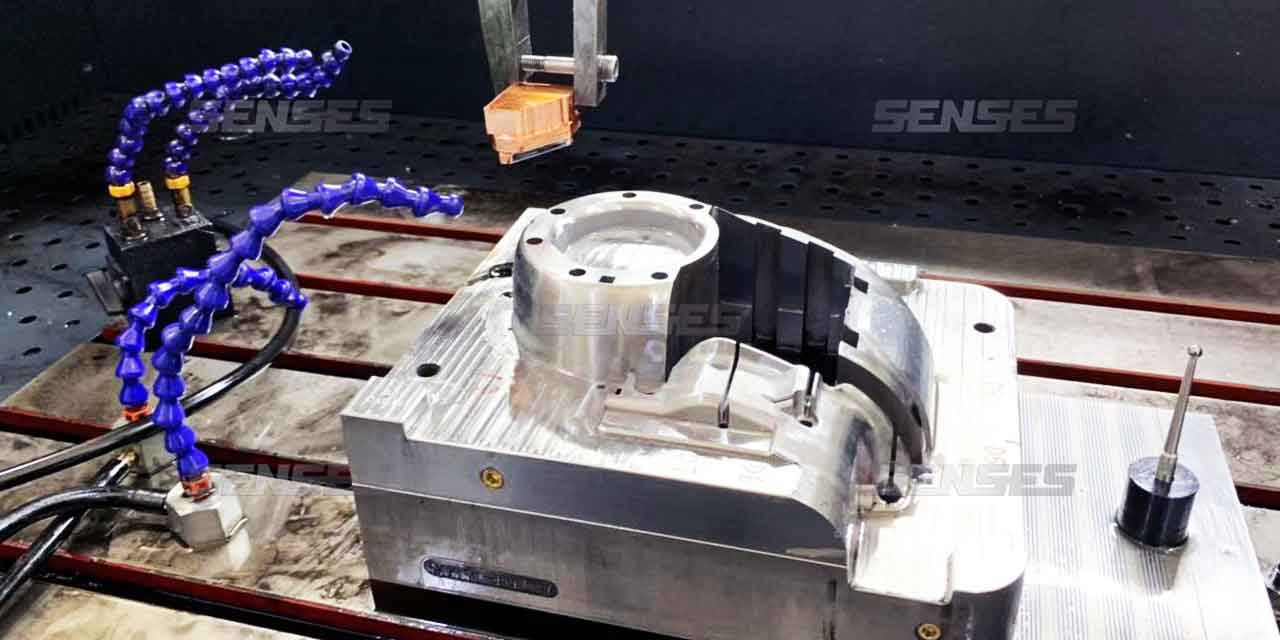The impact of rapid tooling on injection molding is significant and multifaceted. Injection molding is a manufacturing process used to produce a large volume of plastic parts, and rapid tooling provides a faster, more flexible approach to tool making for this process. “Rapid Tooling” refers to a group of techniques used to fabricate tools quickly, particularly in the manufacturing sector. It’s a subset of rapid prototyping technologies, used for creating molds, dies, patterns, and other tooling components in a significantly reduced timeframe compared to traditional methods. The concept is often associated with the rapid development of prototypes or small-batch production parts.
Types of Rapid Tooling
Direct Rapid Tooling: Directly fabricates the tooling with rapid prototyping processes. This method is faster but may have limitations in terms of material strength and longevity.
Indirect Rapid Tooling: Involves using rapid prototyping to create a pattern, which is then used to form a mold. This approach is more versatile and allows for a wider range of materials.
Technologies Used in Rapid Tooling
Additive Manufacturing: Involves 3D printing technologies like Stereolithography (SLA), Selective Laser Sintering (SLS), and Direct Metal Laser Sintering (DMLS) for creating tooling components directly from CAD models.
Subtractive Manufacturing: CNC (Computer Numerical Control) Machining is used to subtractively manufacture tooling components from solid blocks of material. It’s often used in indirect Rapid Tooling processes.
The advantages of Rapid Tooling
Reduced Tooling Time
- Fast Prototyping: With Rapid Tooling, injection molding tools can be made in a matter of days, as opposed to weeks or even months with traditional methods.
- Quick Iterations: Design changes can be implemented swiftly since the time to modify or remake tools is significantly reduced.
Cost Reduction
- Cost-Effective Prototyping and Small Batch Production: A more cost-effective solution for small batch production or prototyping.
- Less Waste: More precise tool-making processes reduce material wastage.
Enhanced Design Flexibility
- Complex Design Feasibility: This method enables the production of molds for complex or custom designs more feasibly.
- Easy Design Modifications: Designers can quickly test and modify designs without worrying about high tooling costs.
Increased Viability of Small Batch and Custom Production
- Meeting Specific Needs: This approach offers an efficient way to produce for special applications or custom products.
- Feasibility for Short-term Projects: ideal for short-term projects requiring rapid completion.
Rapid Tooling disadvantages
Rapid Tooling, while offering significant advantages in terms of speed and flexibility, also has certain drawbacks that are important to consider. Here are some of the main disadvantages:
Material Limitations
- Durability Issues: Tools made using rapid tooling techniques might not be as durable as those made with traditional methods, leading to a shorter lifespan.
- Material Properties: The range of materials suitable for rapid tooling can be limited, and these materials may not always match the properties of traditional tooling materials in terms of strength, thermal resistance, and stability.
Precision and Quality Concerns
- Surface Finish: The surface finish of tools produced by rapid tooling methods, especially those using additive manufacturing, can be rougher compared to traditional methods, potentially requiring additional finishing processes.
- Tolerances: Achieving tight tolerances can be more challenging with rapid tooling, which might not meet the high precision requirements for certain applications.
Rapid Tooling has become a crucial aspect of injection molding manufacturing, allowing for faster turnaround times, greater flexibility in design changes, and cost savings, particularly in the early stages of product development and in custom or small-batch production scenarios.
Injection Molding Services by Senses
Senses is an ISO 9001:2015 certified plastic injection molding company, offering a comprehensive array of services including mold and part design, prototyping, small-batch production, and full-scale manufacturing. We serve a diverse range of industries, encompassing automotive, medical, and consumer electronics. Our focus is on ensuring each product we deliver meets the highest standards of quality and functionality.
For personalized solutions and expert consultation, reach out to us today at info@senseschina.com.





